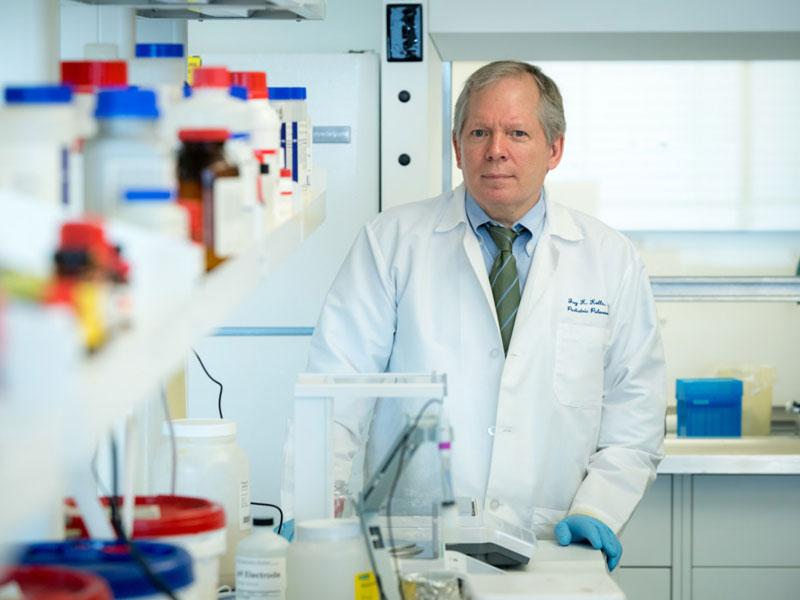Effort to prevent, treat COVID-19 gets a boost
Work on a new COVID-19 drug by a Tulane University School of Medicine researcher is getting fast-tracked. Jay Kolls, MD, a professor of medicine and pediatrics, the John W. Deming Endowed Chair in Internal Medicine, and director of Tulane’s Center for Translational Research in Infection and Inflammation, has received a $100,000 Fast Grant for his research to create a drug that prevents the COVID-19 virus from entering healthy cells.
Kolls received the Fast Grant in August 2020. His lab also received a $150,000 gift from The Paul Bechtner Foundation at the recommendation of Drs. Marilyn Carol and Robert Weaver in 2020 to support ongoing research on COVID-19 therapies.
Kolls compared COVID-19 to SARS, the 2004 coronavirus that spread across the globe – both viruses use the same receptor to enter cells, an enzyme called ACE2. In April 2020, Kolls and his team designed a synthetic protein, MDR504, that acts as a decoy to intercept and neutralize the COVID-19 virus before it can attach to ACE2 to cause infection.
“One reason why this virus was wreaking much more havoc than the 2004 virus is, its ability to bind to ACE2 was more potent — we thought that that could be the Achilles’ heel for this virus. If it has higher affinity for a receptor, that means that potentially that interaction becomes druggable,” Kolls said.
“We essentially made a decoy receptor to fool the virus,” he added. “We engineered the decoy receptor to look like an antibody, and then we engineered the antibody so it could get into the part of the lung that transports oxygen to the rest of the body,” and that part of the lung is where the virus infects and causes damage.
The result is a drug that may work as both an early treatment and preventive therapy for COVID-19.
Kolls’ lab is currently working on satisfying FDA requirements to support MDR504’s efficacy, including planning for testing against no fewer than 20 mutations to the virus.
Fast Grants are rapidly accelerated grants of $10,000 to $500,000 that are provided to scientists who are currently working on COVID-19 related projects. Fast Grants are awarded within 14 days of application, sometimes in only 48 hours, and in most cases are expected to be used within six months.

